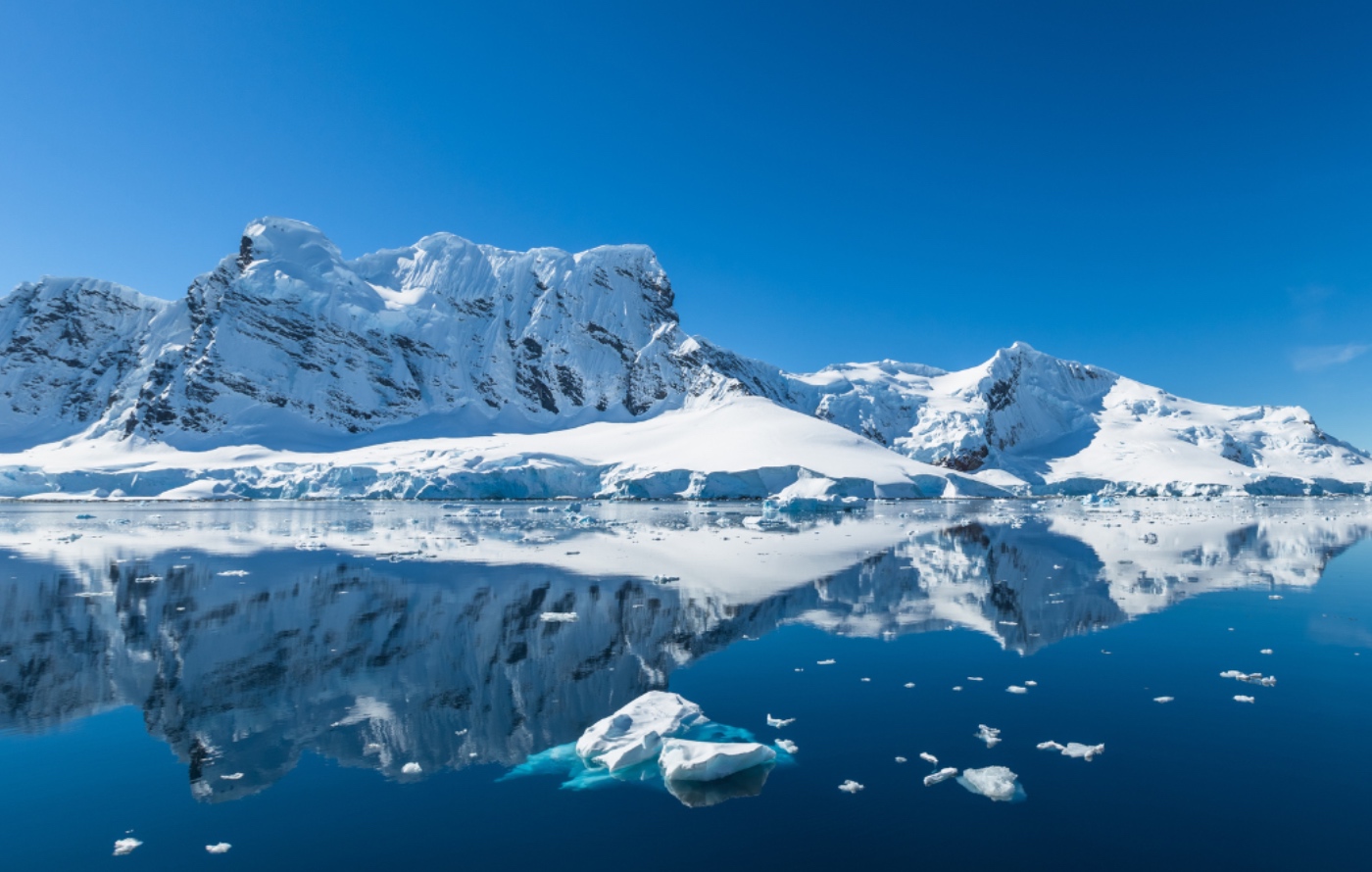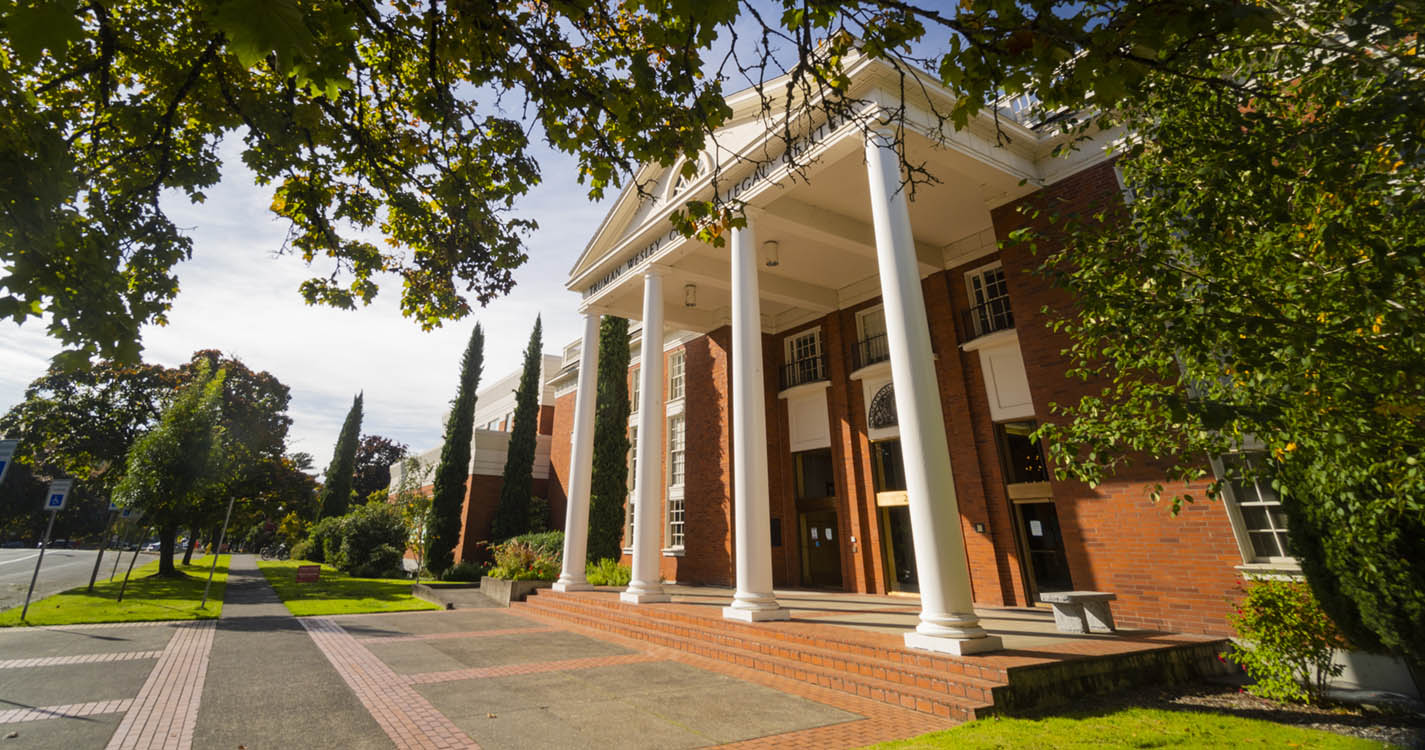Last summer, a group of Willamette Law students ventured into unexplored legal territory. The school's groundbreaking Polar Law course — the only one of its kind in the nation — challenged students to tackle the complex legal challenges unfolding at the ends of the earth.
Polar Law is one of many courses offered only during Willamette Law's summer and winter intersessions to give students the opportunity to pursue new and specialized areas of legal study they may not have the time for during the course of a semester. Adjunct Professor Scott Beckstead developed and taught the law school’s first ever Polar Law course, the only course of its kind in the country. Beckstead began teaching at Willamette Law in 2010, expanding the school’s animal and environmental law offerings. Over the years, he has taught on topics ranging from animal agriculture to endangered species and cannabis law - always listening to what students are wanting to learn and adjusting his courses to fit the need. Throughout his courses, he aims to include varying viewpoints, and that the more scientific and technical areas of the law are explored by bringing in guest lecturers.
While teaching a course on endangered species law and Alaska wildlife law, Beckstead first collaborated with Dr. Lida Teneva, a coral reef scientist, marine conservationist, and educator, who has broad expertise on topics related to the ocean, marine conservation, and the governance of the polar regions. When it came time to develop the Polar Law course, reaching out to Teneva as a guest instructor was an obvious choice.
The course examined how the Arctic and Antarctic regions are governed by international treaties and conventions, ongoing wildlife conservation efforts in the regions, and the legal challenges posed by climate change.
“This course is unique in integrating different voices and perspectives — tying together science and policy to help students understand all sides of the issues,” Beckstead says. “It’s essential for students to become well-rounded lawyers who can approach complicated and interconnected topics. It is not just polar law, it’s also policy, international relations, and science.”
For Gannon Miller JD’25, he enrolled in the course because he found the subject matter compelling. “I’ve always had a general interest in the environment and climate change’s impacts on the depths of the world I am unfamiliar with,” Miller shares.
Struck by the complexities of polar governance, Miller was most surprised to learn about world diplomacy that he didn’t know or realize existed. The course opened his eyes to the plethora of unanswered questions around who owns what land and resources, where people can travel, and how climate change is rapidly impacting policy. While the challenges are many, Miller shares “I don’t feel entirely defeated by the lack of effort worldwide. The biggest battle is against time.”
A key focus area of the course was on the distinction between how the Arctic and Antarctic are governed. “The Arctic is home to sovereign states, while Antarctica is managed more as a global commons,” Beckstead explains. “It’s fascinating for students to see how the international community collaborates — and sometimes conflicts — over environmental conservation in these regions.”
As the polar environments face the growing impact of climate change, this area of law becomes more urgent. “These topics are heating up — both literally and figuratively,” shares Teneva. “Though with that comes more opportunity to impact change. The role of lawyers in this field will become all the more significant, especially as we consider how and if the melting polar ice caps could expose new resources, open shipping routes, and even raise concerns around international tensions.”
Miller emphasized the importance of having legal advocates who are knowledgeable about these issues, both now and in the future. “Climate change is an issue that’s not going away anytime soon. Having more people and advocates familiar with the subject will foster better discussions that will, theoretically, lead to solutions in everyone's best interests,” Miller said. "These issues are real and important, and they impact human rights around the globe."
The course gave students a real-world look into several foundation aspects of polar law including international law, the law of the sea, and maritime law. It provided them with a way of looking at how complex and interconnected legal systems can be - knowledge that will serve them well in any area of law they study.
Beyond the legal frameworks, Beckstead believes innovative new courses, such as this Polar Law course, offer students a chance to engage with critical and timely global issues. He hopes that students left with a sense of how the law can be a force for good.
Beckstead shares “I think students found it fascinating and rewarding — and it’s knowledge they can carry with them throughout their legal careers.” The course represents one of the many examples of Willamette Law’s forward-thinking approach to curriculum, preparing students to tackle some of the most pressing challenges of our time.




